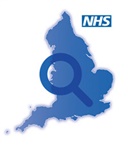Newspapers often comment on cancer treatment. ‘NICE under fire for veto of eleven new cancer drugs’ and ‘NHS says no to new breast cancer drug’ were recent bold headlines. What do these have in common? Turning drugs down.
It’s worth knowing that NICE – the NHS ‘watchdog’ – has also approved more than 6 out of 10 (63%) of the cancer treatments it has assessed. Sadly, saying ‘yes’ is usually less newsworthy. But last month, NICE did just that. Many people with a form of skin cancer will now receive a drug that helps their immune system destroy cancer cells. Ipilimumab was licensed as a first-line treatment for people with advanced melanoma – when their tumour can’t be removed, or their cancer has spread.
Visit our website to find out more about Ipilimumab. We’ll tell you how it works, when it’s used, and its possible side effects.
Ipilimumab didn’t reach any front pages. But NICE were criticised for their original decision: only offering the drug to people who had already received chemotherapy, or were taking part in clinical trials. So who exactly are NICE? And why did they change their mind about Ipilimumab? Knowing how NICE make decisions about drugs – approved and rejected – helps us better understand cancer treatment in parts of the UK.
NICE stands for National Institute of Health and Care Excellence. We often hear about the health 'postcode lottery'. NICE were developed to get rid of it. They independently decide which drugs and treatments are available on the NHS in England and Wales. By providing national guidance, NICE aim to give people equal access – whatever their postcode. But this isn’t simple. Only days ago, Macmillan found that diagnosis and referral for cancer treatment still varies widely by location (and luckily, this did make big news).
 |
Visit My Cancer Treatment to search to easily search for cancer services in England by postcode. |
NICE look at certain evidence: how well treatments work in relation to how much they cost compared with other treatments already available on the NHS. It’s the ‘cost’ part that makes the most headlines. They also look at how a treatment affects quantity of life (how long a person might live for) and quality of life (how well a person is – and whether they can work and care for themselves).
NICE received new evidence about Ipilimumab: Bristol-Myers Squibb, the manufacturer, provided more information on how well it works. And doing a further analysis of their data showed that it works as well as – or better – than other treatments for advanced melanoma currently available on the NHS. NICE felt this justified the cost.
Ipilimumab will be available within 3 months. If you have advanced melanoma that has not been treated before, and your doctor thinks that ipilimumab is the right treatment for you, it should now be accessible on the NHS (in England, Wales and Northern Ireland).
The Macmillan team is here to help. Our cancer support specialists can answer your questions, offer support, or simply listen if you need a chat. Call us free on 0808 808 00 00.
Comments? Feel free to add them below (you need to be logged in – if you still can't see the comment box, click on this blog's title at the top).
Keep in touch Follow Macmillan’s cancer information team on Twitter @mac_cancerinfo
Whatever cancer throws your way, we’re right there with you.
We’re here to provide physical, financial and emotional support.
© Macmillan Cancer Support 2024 © Macmillan Cancer Support, registered charity in England and Wales (261017), Scotland (SC039907) and the Isle of Man (604). Also operating in Northern Ireland. A company limited by guarantee, registered in England and Wales company number 2400969. Isle of Man company number 4694F. Registered office: 89 Albert Embankment, London SE1 7UQ. VAT no: 668265007